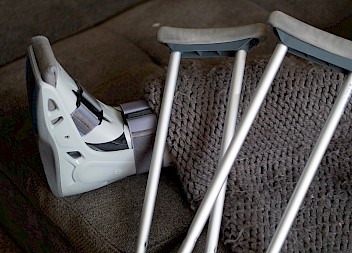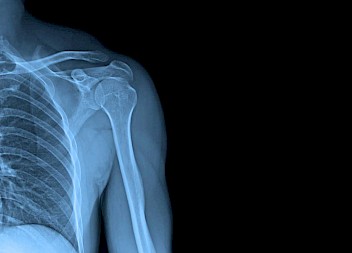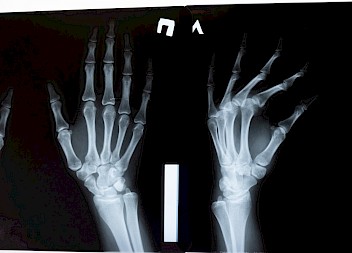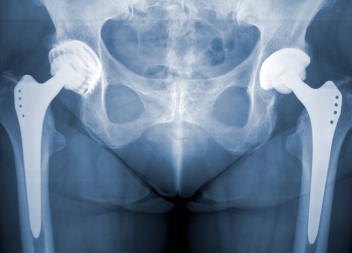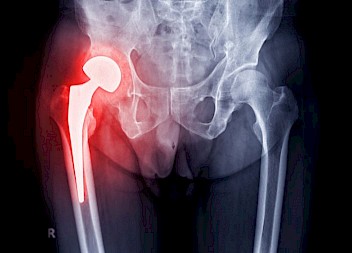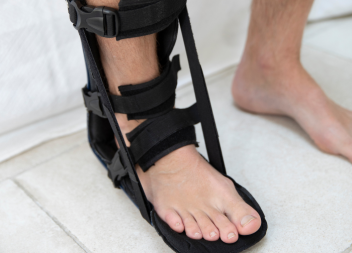A woman in her 30s has been awarded £100,000 in compensation after being left with a permanent locked knee following delays to diagnose and treat a sports injury.
The woman tore both her meniscus and ACL which required surgery. Owing to medical negligence, she now has ongoing pain, instability, and loss of movement and extension in her left knee. She also has a significantly increased risk of osteoarthritis.
A keen athlete, she is unable to run or play sports that require her to pivot which has impacted her mental health. She was supported to make a medical negligence claim for her injuries by our senior litigator, Sonia Parkes.
Case summary
In August 2018, the claimant ‘C’, who was 29 at the time, was playing netball when she jumped and landed on a straight knee. She felt it pop and was in sudden pain.
The following day C went to A&E where she was assessed and x-rayed. There was no fracture but she was referred to the orthopaedic clinic where she was seen a week later. Here, C was told she had soft tissue damage and was advised to rest, wear a cricket knee splint, and to come back in two weeks for an MRI scan if she was still in pain.
She returned as advised two weeks later where she was seen by a specialist in orthopaedics. An MRI scan was arranged and she was to be reviewed with the result – but the MRI didn’t take place until October.
C went for a follow-up appointment with a registrar 11 days after the MRI scan but it hadn’t been reported and was told it would be at least another two weeks wait. Nonetheless, the registrar looked at the results and noted a tear of the medial meniscus posterior horn at the back of the knee.
The meniscus is a C-shaped cartilage disc in the knee which acts like a cushion or shock absorber between the thigh bone (femur) and shin bone (tibia) and keeps the knee stable.
The registrar explained to C about the tear and what her treatment options were. But things couldn’t progress until the official MRI report came back so advised C to come back for another review in three weeks’ time.
In November 2018, three months after the injury, C went back and was told the tear was actually a bucket handle tear. This is where a tear forms in the centre of the meniscus, flips and becomes stuck in the front of the knee. Because the ends of the meniscus are still attached to the knee joint and the outer edge is curved, it looks like a bucket handle.
Bucket handle tears cause a lot of pain and can prevent the knee from straightening properly. C was added to the trauma operating list and booked in for meniscus surgery ten days later. Here she had partial and lateral meniscectomies and ACL resection rather than ACL repair.
After the surgery, C had five months of physiotherapy to rehabilitate her knee. However, by March 2019 C couldn’t fully straighten her knee. A consultant in knee surgery and sports trauma told her to do a few ‘tricks’ at home to complete her rehab.
C was reviewed again the following month as her knee still wouldn’t straighten. She was listed for more surgery plus capsular release to try and restore knee function. This was followed by another two months of physio.
At another review in July, C was told her ACL injury remained but there were no plans to reconstruct it unless she had instability. The ACL, or anterior cruciate ligament, stabilises the knee and prevents hyperextension.
In November 2019, some 15 months after the injury, C went to her GP with loss of extension in her knee but she could flex it and there was no swelling or fluid around the joint. She was referred back to the physio for a third time from May 2020, due to the coronavirus pandemic this was mostly done at home over the phone.
Litigation
Our client alleged that she would have regained full range of movement in her knee had she not experienced delays with the MRI scan and surgery. She also alleged that, had she undergone surgery within two weeks of the injury, she would have returned to running and netball within six months.
The defendant trust admitted there was an avoidable delay to surgery of approximately eight weeks. The case went to mediation where the defendant trust made an initial offer of £35,000 which did not settle. This was increased to £85,000 and then again to £100,000 which the claimant accepted. This was estimated to be broken down into £35,000 general damages and £65,000 special damages.


